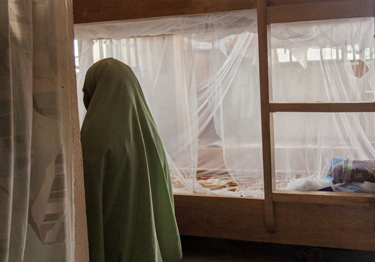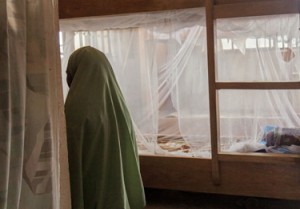Blessing’s story is short, and it has many holes, simply because she doesn’t remember much of her life – at least the part before she came to Lagos, West Africa’s biggest metropolis.
Years ago, she left her native Ghana with an aunt who was headed for neighbouring Nigeria. The aunt promised Blessing’s parents that the girl would go to school and work to send them money. Like millions before her, she arrived in Lagos looking for opportunity.
Blessing never made it to school. For the first three years, she did household domestic work, and then her aunt disappeared, leaving her with a friend who took her to Abuja, Nigeria’s capital. Again she was promised she would go to school, but instead Blessing was sent to work. Finally a policeman, suspicious that something was wrong, began asking Blessing questions about her parents.
She knew she came from Ghana but knew little else about her family. The policeman took Blessing to a shelter run by the Women Trafficking and Child Labour Eradication Foundation, WOTCLEF, a Non-Governmental Organisation dedicated to eradicating trafficking, child labour and violent abuses of the rights of children and women.
A means of exploitation
There is no accurate estimate of how many children are trafficked into, out of and within Nigeria. The clandestine nature of trafficking, combined with a frequent lack of identity documents for children, makes the full scope of the issue difficult to track.
“We know we have a serious problem, especially since poverty and illiteracy rates are still very high,” explains Veronica Umaru, National Coordinator for WOTCLEF. “Many mothers believe the lies they are told by the traffickers and think their children will have a better life. When a mother finds out what has happened, they are often devastated,” she explained.

Umaru, a retired schoolteacher who joined WOTCLEF six years ago, thinks the once-useful system of fostering children through extended family – in which aunts, uncles, cousins or even older siblings help raise children – has evolved into a means of exploitation.
“Instead of being cared for, we see children being used as a way to earn money,” she said.
Rescuing and reunifying children
WOTCLEF is a member of the Abuja Child Protection Network, ACPN, made up of twenty-three NGOs in Abuja. The network has set up an anti-trafficking brigade of social workers, lawyers and community members to identify and report cases of trafficking. There is also a public hotline number for reporting trafficked children. When a suspected trafficking case is identified, the brigade works closely with the police to rescue the child and prosecute those involved in the trafficking.
The ACPN is one of 30 establishments in towns across the country with technical support, equipment and training from the United Nations Children’s Fund, UNICEF. ACPN assists children who have been trafficked, abused or are at risk by providing services such as shelter, family tracing, counselling, legal assistance and care.
One benefit of the networks is that they build contacts with many corners of the country, which, Ms. Umaru says, helps trace and return children to their families. “If one of our children’s family is in the south, we can simply call one of our members there, who can visit the family and understand the circumstance, before the child is taken back to their community,” she said.
The WOTCLEF shelter opened in 1999 with room for 30 children. Blessing is one of 12 children who currently call the shelter home and have lived there as long as five years.
Agatha Kwankhuas, the house mother for the past seven years, says the children come to her terribly scared, unable to trust any adult. “It takes time for them to stop feeling afraid, and often they are afraid to be left alone,” she says.
Justice
Less than half of Nigeria’s children are legally registered at birth, according to the 2011 Multiple Indicator Cluster Survey, which makes reunifying families a complicated undertaking. As a way to help the shelter’s children overcome the challenges, Lucky Durueke, a local lawyer, set up the Child Justice Clinic in an office building close to WOTCLEF a year ago.
“There is not enough being done to support the legal work needed to handle cases related to trafficking and abuse,” said Mr. Durueke. “Without the clinic offering free legal services, these cases will never go anywhere.”
With no identity papers and no memory of where – or even who – her family is, Blessing’s case is particularly difficult, and she is not likely to go back to Ghana anytime soon.
But now, at age 15, Blessing is finally going to school. It’s hard work catching up on all the years she missed, but at last, she says, she is learning.



